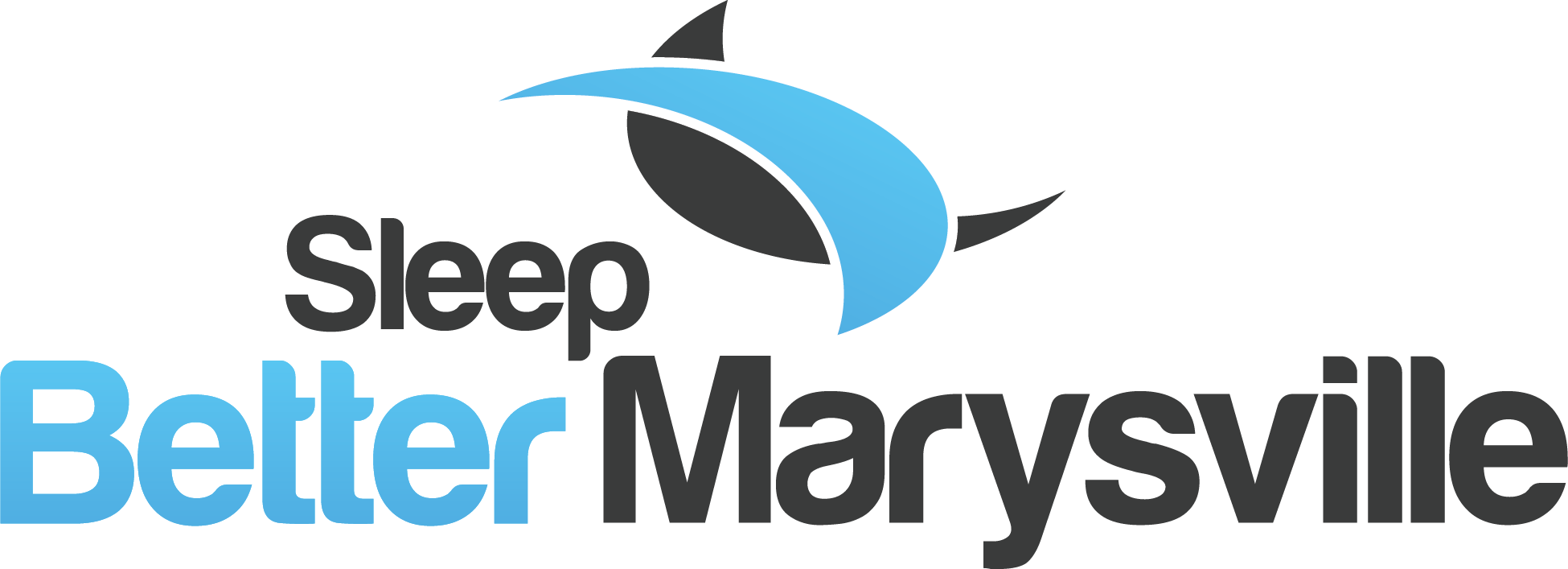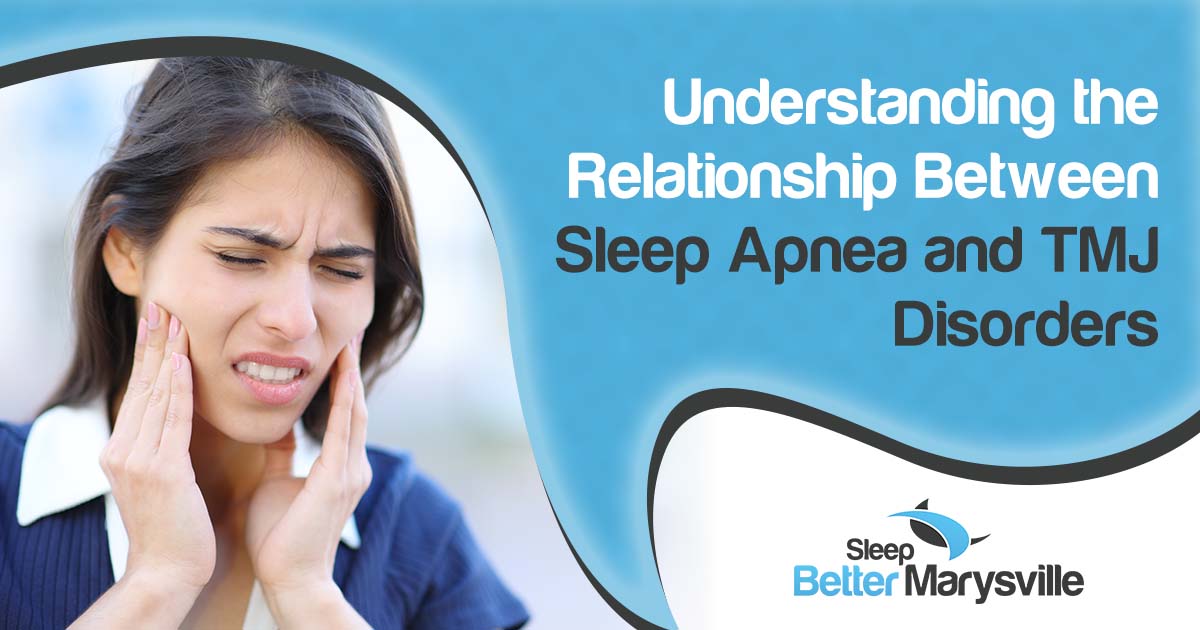Sleep apnea and TMJ disorders are two common conditions that can significantly impact a person’s quality of life. Though they may seem unrelated at first, research has shown a connection between these two conditions, and addressing both can lead to improved outcomes. This article explores the relationship between sleep apnea and TMJ disorders, helping individuals understand how one may influence the other and how both conditions can be effectively managed.
What is Sleep Apnea?
Sleep apnea is a serious sleep disorder that causes breathing interruptions while asleep. These interruptions can last for a few seconds or even longer, leading to reduced oxygen levels in the blood and fragmented sleep. The condition is often undiagnosed, as it typically occurs during sleep when the individual is unaware of the breathing pauses. There are different types of sleep apnea, each with its unique causes and symptoms.
Definition and Types of Sleep Apnea
- Obstructive Sleep Apnea (OSA): The most common type of sleep apnea occurs when relaxed throat muscles temporarily block the airway during sleep.
- Central Sleep Apnea: In contrast to OSA, central sleep apnea happens when the brain does not send the correct signals to the muscles that control breathing, resulting in inadequate respiratory effort.
- Complex Sleep Apnea Syndrome: This is a combination of both obstructive and central sleep apneas.
Common Symptoms of Sleep Apnea
Typical signs of sleep apnea include loud snoring, choking or gasping for air while asleep, excessive daytime drowsiness, trouble concentrating, and irritability. Those with untreated sleep apnea may also suffer from headaches and a dry mouth upon waking.
How Sleep Apnea Affects Your Health
If left untreated, sleep apnea can seriously impact overall health. It has been linked to various health problems, such as high blood pressure, heart disease, stroke, diabetes, and even daytime fatigue, which increases the risk of accidents. Additionally, sleep apnea can negatively affect the quality of life by disrupting sleep patterns and causing persistent tiredness.
What are TMJ Disorders?
TMJ disorders, or temporomandibular joint disorders, impact the joints and muscles responsible for jaw movement. These joints on both sides of the head connect the lower jaw to the skull and are essential for speaking, chewing, and swallowing. When the TMJ is misaligned or experiences excessive stress, it can cause various symptoms that interfere with everyday activities.
Overview of TMJ Disorders
TMJ disorders occur when the jaw joint or surrounding muscles become dysfunctional. The disorder can result from various causes, including jaw injuries, teeth grinding, arthritis, or even stress. When these issues arise, the muscles around the joint can become tense, leading to pain and limited jaw movement. TMJ disorders are often chronic, though they can vary in severity.
Symptoms and Causes of TMJ Disorders
Common symptoms of TMJ disorders include jaw pain or tenderness, headaches, difficulty opening or closing the mouth, clicking or popping sounds when chewing, and facial pain. As the TMJ is near the ears, individuals may also experience earaches or ringing in the ears (tinnitus).
The causes of TMJ disorders are varied, but they often involve a combination of physical factors, including injury, misalignment of the teeth or jaw, teeth grinding (bruxism), and stress, which can lead to muscle tension in the jaw area.
How TMJ Disorders Impact Daily Life
TMJ disorders can significantly impact daily activities, particularly those involving eating and speaking. The pain and discomfort associated with the condition may make it difficult for individuals to chew food or talk for extended periods. The condition can interfere with work and social interactions in more severe cases. Additionally, the chronic nature of the disorder can lead to stress and frustration, further exacerbating the symptoms.
How Sleep Apnea and TMJ Disorders Are Connected
While sleep apnea and TMJ disorders may seem like separate health concerns, they are more closely related than many people realize. Both conditions involve the muscles and structures of the head, neck, and jaw, and evidence suggests that one can worsen the other. Understanding the connection between these two conditions can help individuals seek effective treatment.
Understanding the Link Between TMJ and Sleep Apnea
The link between sleep apnea and TMJ disorders lies in the impact both conditions have on the muscles and structures of the jaw and airway. The airway becomes obstructed during sleep for individuals with sleep apnea, often due to muscle relaxation or tissue collapse. This can lead to increased pressure on the jaw, which may cause or worsen TMJ pain. Conversely, the discomfort and muscle tension caused by TMJ disorders can make it more difficult for individuals to maintain proper airway function during sleep, increasing the likelihood of sleep apnea episodes.
Impact of TMJ on Airway Function and Breathing
TMJ disorders can affect the jaw’s alignment, leading to changes in airway function. Misalignment of the jaw may cause the throat muscles to tighten, restricting airflow and potentially contributing to the development or worsening of sleep apnea. Additionally, individuals who grind their teeth at night—a common symptom of TMJ disorders—may inadvertently cause airway obstruction, further complicating their sleep apnea symptoms.
Shared Risk Factors for Both Conditions
There are several shared risk factors between sleep apnea and TMJ disorders. Stress is a major contributor to both conditions. Stress can lead to teeth grinding (bruxism), which is a common symptom of TMJ disorders, and can also worsen sleep apnea by increasing airway resistance. Additionally, individuals who are overweight or have a sedentary lifestyle may be at higher risk for both conditions. Poor posture and jaw alignment are also linked to sleep apnea and TMJ disorders, as these factors can strain the muscles of the jaw and airway.
How TMJ Disorders Can Worsen Sleep Apnea
TMJ disorders can significantly affect the severity of sleep apnea, making it more difficult for individuals to get restorative rest. When the jaw is misaligned or under tension, it can interfere with normal airway function, leading to more frequent and prolonged breathing interruptions during sleep. This section explores the specific ways in which TMJ disorders can exacerbate sleep apnea symptoms.
Muscle Tension and Jaw Alignment Issues
One of the primary ways TMJ disorders can worsen sleep apnea is through muscle tension. When the muscles around the jaw and neck are tense due to a TMJ disorder, they can affect the jaw’s position, potentially leading to airway obstruction. For example, a misaligned jaw may cause the tongue to fall back into the throat during sleep, obstructing the airway and increasing the risk of apnea episodes. Muscle tension can also lead to difficulty maintaining proper jaw posture during sleep, contributing to breathing difficulties.
The Role of Teeth Grinding in Sleep Apnea
Teeth grinding, or bruxism is a common symptom of TMJ disorders and can significantly worsen sleep apnea. People who grind their teeth during sleep often do so involuntarily, leading to jaw tension and misalignment. This repetitive motion can create further blockage in the airway, making it harder for individuals to breathe correctly while sleeping. In addition to its impact on sleep apnea, bruxism can cause additional discomfort and damage to the teeth and jaw over time.
Impact on Overall Sleep Quality
The combination of TMJ pain, muscle tension, and teeth grinding can negatively impact sleep quality. Individuals with both sleep apnea and TMJ disorders may find themselves waking up frequently throughout the night, either due to interrupted breathing or discomfort from jaw pain. The fragmented sleep caused by these conditions can lead to excessive daytime sleepiness, difficulty concentrating, and reduced overall health and well-being. For individuals suffering from both conditions, addressing both sleep apnea and TMJ disorders simultaneously can be essential to improving sleep quality and restoring proper rest.
Effective Treatments for Sleep Apnea and TMJ Disorders
Managing both sleep apnea and TMJ disorders requires a comprehensive approach that addresses each condition individually while also considering how they may interact. Treatment options for both conditions vary depending on the severity of the symptoms and the underlying causes. Working with healthcare providers, individuals can find the most effective treatments to improve their sleep quality and reduce discomfort.
Treatment Options for Sleep Apnea
There are several treatment options available for managing sleep apnea, ranging from lifestyle changes to medical interventions:
- Continuous Positive Airway Pressure (CPAP): One of the most common treatments for sleep apnea, a CPAP machine delivers a constant stream of air through a mask to keep the airway open during sleep. This is particularly effective for individuals with moderate to severe obstructive sleep apnea (OSA).
- Oral Appliances: These devices, also known as mandibular advancement devices, are designed to reposition the lower jaw and tongue, keeping the airway open while the person sleeps. Oral appliances are often recommended for individuals with mild to moderate sleep apnea.
- Surgery: In some cases, surgery may be necessary to treat sleep apnea, mainly when there is a physical obstruction in the airway, such as enlarged tonsils or nasal polyps. Surgical procedures may involve removing excess tissue or repositioning the jaw to improve airflow. Unfortunately, many of these procedures are high-risk with low success rates.
TMJ Disorder Treatment Approaches
Treatment for TMJ disorders focuses on reducing pain, improving jaw function, and addressing the condition’s underlying causes. Standard treatment options include:
- Physical Therapy: Physical therapy can help improve jaw mobility, reduce muscle tension, and promote better jaw alignment. Stretching and strengthening exercises may be recommended to improve muscle function and relieve pain.
- Oral Appliances: Similar to their use in treating sleep apnea, oral appliances that relieve TMJ pain can help reduce jaw tension and prevent teeth grinding. These devices are typically worn at night to alleviate pressure on the TMJ.
- Medications: Over-the-counter pain relievers, such as ibuprofen or acetaminophen, can help reduce inflammation and manage pain. In some cases, muscle relaxants or anti-anxiety medications may be prescribed to reduce muscle tension or stress.
- Injections and Surgery: In more severe cases, injections of corticosteroids or Botox may be used to reduce inflammation or muscle spasms. Surgery is generally considered a last resort for TMJ disorders when conservative treatments have not been effective.
How Treatment for One Can Improve the Other
Treating either sleep apnea or TMJ disorders can positively impact the other condition. For example, using a CPAP machine to treat sleep apnea may reduce the need for muscle tension in the jaw, alleviating some symptoms of TMJ disorders. Similarly, using an oral appliance to treat TMJ pain can improve jaw alignment, which may reduce the severity of sleep apnea by preventing airway obstruction during sleep.
By addressing both conditions in a comprehensive treatment plan, individuals can experience improved sleep quality, reduced discomfort, and better overall health.
Schedule a Consultation with Sleep Better Marysville Today
If you or someone you know is struggling with sleep apnea or TMJ disorders, it’s essential to seek professional help. Sleep Better Marysville specializes in diagnosing and treating both conditions, providing personalized care to help improve your sleep and overall health. By addressing sleep apnea and TMJ disorders together, our team can develop a treatment plan tailored to your unique needs, offering relief from symptoms and improving your quality of life.

